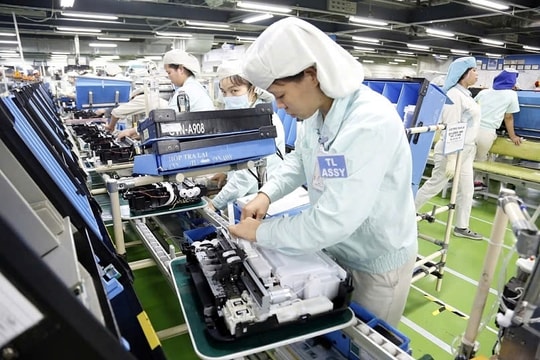Ministry licenses vaccines against dengue, shingles and pneumococcal 23
The newly licensed vaccines are the Qdenga Vaccine to prevent dengue fever, the Shingrix Vaccine to prevent shingles and the Pneumovax 23 Vaccine to prevent 23 strains of pneumococci.
HÀ NỘI — Three new vaccines including a dengue fever vaccine, a vaccine against shingles and a pneumococcal 23 vaccine have been licensed by the Ministry of Health (MoH).
The newly licensed vaccines are the Qdenga Vaccine to prevent dengue fever, the Shingrix Vaccine to prevent shingles and the Pneumovax 23 Vaccine to prevent 23 strains of pneumococci.
Bạch Thị Chính, Medical Director of the VNVC Vaccination System, said that all three new vaccines were produced by major pharmaceutical companies in the world, including Takeda in Japan, GSK in Belgium and MSD in the US.
The VNVC Vaccination System will be bringing these new vaccines to serve the Vietnamese people at a system of nearly 200 VNVC centres nationwide.
Associate professor Trần Đắc Phu, former Director of the General Department of Preventive Medicine under the MoH, said that the licensing council had considered and assessed the three vaccines’ safety and effectiveness before being used in Việt Nam.
Phu assessed that the vaccines had been used in many countries around the world, adding that the licensing in Việt Nam was very good news.
Doses
The Qdenga Vaccine against dengue fever, produced by Takeda pharmaceutical company, is effective in more than 80 per cent of cases and against all four dengue virus groups.
The vaccine is for children four years old and older, and it is administered in two injections three months apart.
The Shingrix Vaccine to prevent shingles is produced by the GSK Pharmaceutical Company and has an efficacy rate of over 97 per cent. It is for people aged at least 50, or for those over 18 years of age and older with a high risk of shingles due to immunodeficiency. The schedule for this vaccine is two shots, from two to six months apart.
The Pneumovax 23 Vaccine, produced by MSD Pharmaceutical Company, has a protective effect of more than 90 per cent.
It is for children from two years old and adults with an one-shot vaccination schedule.
Director Chính said: "The use of these vaccines will help reduce the number of illnesses and deaths in both children and adults, reduce overcrowding due to hospitalisation and post-treatment care costs. Plus people will not need to travel abroad to get advanced vaccines but can benefit domestically.”
Risks
Last year Việt Nam recorded more than 172,000 cases of dengue fever, of which 43 people died, according to the MoH.
Dengue fever has four virus groups and does not create cross-immunity, so each person can suffer from the disease four times in their life.
Subsequent infections will be more severe due to the influence of cross-immune complexes.
If not treated promptly, patients, especially high-risk groups such as children, pregnant women, people with chronic diseases and obese people, can experience fatal complications including heart failure, kidney failure, shock, multiple organ failure and brain haemorrhages.
For pregnant women, dengue fever can cause fetal distress, premature birth and stillbirth.
Shingles is caused by the Varicella Zoster virus, which is also the cause of chickenpox.
The disease leaves many complications for people over 50 years old, especially people with many underlying diseases such as diabetes, cardiovascular disease, diseases requiring long-term use of corticosteroids, cancer, immunosuppressive drugs and HIV.
In particular, after the bullous lesions caused by shingles have healed, up to one in five patients (according to numbers from the US) can still suffer from prolonged pain called postherpetic neuralgia (PHN).
This can reduce the ability of the person to work and impacts their general health, psychology and ability to sleep well, with treatment for the problems complex and expensive.
Pneumococci are the common cause of the most dangerous invasive pneumococcal diseases such as pneumonia, meningitis, sepsis, as well as non-invasive pneumococcal diseases such as otitis media, nasopharyngitis and sinusitis, with mortality rates from 10 to 20 per cent.
The disease is especially dangerous for high-risk groups such as children under five years old, adults over 65 and people with weakened immune systems due to chronic diseases such as chronic obstructive pulmonary disease, diabetes, tuberculosis, cardiovascular diseases and cancer, who can have a mortality rate of up to 50 per cent.
According to 2017 estimates from the World Health Organisation (WHO), globally 600,000 children under five years old died from pneumococcal diseases, accounting for 10 per cent of deaths in this age group.
Pneumococci also have a very high rate of antibiotic resistance, making treatment difficult. — VNS






















